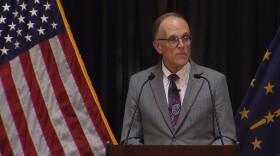The Indiana Commission for Higher Education has adopted new college completion goals that will encourage schools to graduate more students through incentives.Indiana is ranked toward the bottom nationally in higher education attainment, and the state has a low rate of college students who graduate on time. The commission will now pay schools based on a variety of challenges. These include increasing degrees granted at all college levels and encouraging schools to better assist at-risk completion students.“We have a formula that’s based on mission differentiation, so if you’re a research institution or a community college or a comprehensive four-year teaching institution there are different metrics that drive money to you," said Higher Education Commissioner Teresa Lubbers.The new strategic plan involves three key challenges:
- College completion: increasing on-time college graducation rates to at least 50 percent at four-year schools and 24 percent at two-year schools by 2018.
- Degree production: doubling the amount of college degrees and certifications produced by 2025 (this would raises the number from 60,000 to 120,000).
- Education attainment: increasing higher education attainment of adults to 60 percent by 2025.
The commission has designed a new set of metrics that Lubbers says needs more data before it can weight specific challenges. But schools will be able to earn more state funding for meeting the completion goals, said Lubbers.Part of the new metrics include graduating students on time. School will earn more money for being able to increase diplomas in this area. Time is the enemy of completion, said Lubbers.“If it takes students too long they’re less likely to graduate. It’s more money which increases their debt load so for a multitude of reasons we think enabling students to graduate on time when possible, should be the goal," she said.



